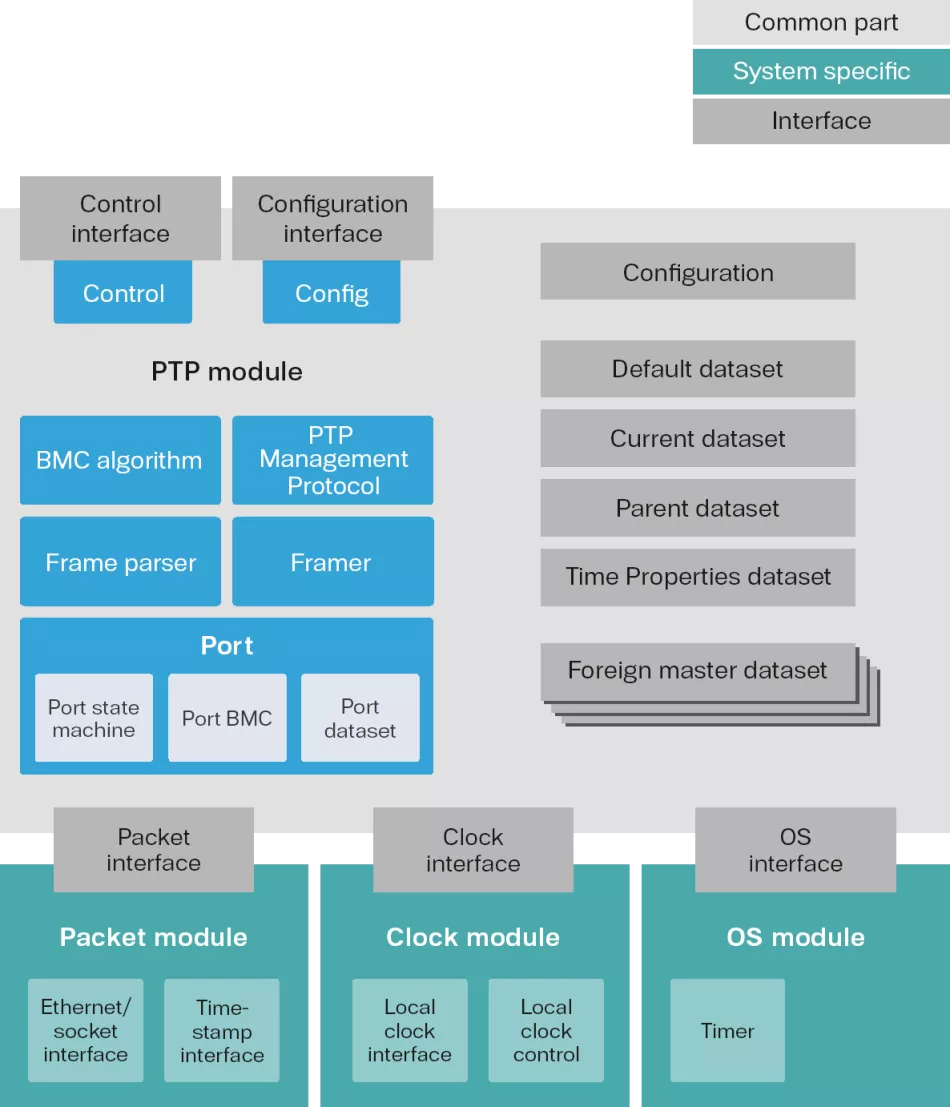Download
Introducing Edge PTP
Edge PTP is a lightweight software stack that provides highly accurate clock synchronization for TSN devices. It implements IEEE 802.1AS standard for Timing and Synchronization and IEEE 1588 Precision Time Protocol to enable the synchronization of real-time clocks across a network within nanosecond range. Multiple time domains support high-availability and enable TSN operation independent of application time settings, e.g. time zone. The stack is field-proven with more than 10 years of use and is continuously put through its paces in interoperability and compliance tests.

Supported Standards
IEEE 1588-2019 PTP
Precision Time Protocol (PTP) enables precise synchronization of device clocks in packet-based networks. Devices are automatically synchronized to the most accurate clock in the network. The protocol supports system-wide synchronization with minimal network and local computing resources. Timing accuracy, which is dependent on device hardware and network features can be down to nanoseconds or even less. PTP provides a general definition for time synchronization in packet-based networks. More detailed definitions for different use cases are called PTP profiles and they define protocol details so that vendor devices can be implemented in an interoperable way for various application domains.
IEEE 802.1AS-2020
IEEE 802.1AS is part of the TSN set of standards. It defines timing and synchronization for time-sensitive applications in bridged local area networks. 802.1AS is based on PTP and provides a more detailed definition of time synchronization for specific TSN use cases (PTP profile). The 802.1AS-2020 revision is also supported by Edge PTP. The revision enables clock redundancy and multiple time domains in the network. Using these features, it is possible to build a more resilient clock synchronization on the system level.
